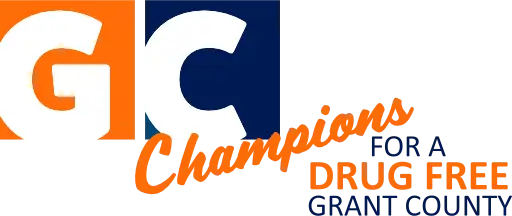VAPING, TOBACCO & MARIJUANA
Tobacco & Nicotine
It is illegal for anyone under 21 years old to buy or use tobacco, including vapor products.
Tobacco is a plant that is grown to make cigars, cigarettes, hookah, and chewing & smokeless tobacco.
The addictive ingredient in tobacco is a chemical called nicotine. When nicotine enters the body, it makes the brain release dopamine which creates pleasure feelings. Over time the body needs increasing amounts of nicotine for the brain to continue producing dopamine leading to addiction.
E-Cigarettes/Vapes
Nicotine is also found in 99% of e-cigarette products, also known as vapes. It is a common misconception among young people that vapes are just ‘flavored water’. While vapes do contain flavorings such as strawberry and cotton candy that sound ‘healthier’ than nicotine, these flavorings were meant to be digested through the stomach – not ingested into the lungs. In addition to nicotine, vapes contain chemicals found in products such as weed killer, antifreeze, rat poison, and nail polish remover, and more. A battery heats a metal coil which then heats the chemicals to be inhaled as an aerosol, like hairspray, not a water vapor like the steam that rises from a pot of boiling water. The heating of the coil also burns off tiny particles of the metal coil so trace amounts of metal are inhaled as well.
Furthermore, vapes are not regulated by the Food and Drug Administration (FDA) like cigarettes are. In some brands of vapes, a single vape device (pod) contains as much nicotine as an entire pack of cigarettes. This also means that substances other than nicotine, such as THC (marijuana) and fentanyl – which is deadly – may be consumed without knowing.
The chemicals in tobacco/nicotine products affect nearly all body systems and increase the risk of disease within these body systems. Learn more about the body systems affected by vaping here.
Smoking, of any kind, does not just effect the smoker. Secondhand smoke is the smoke released into the air when using cigars, cigarettes, vapes, etc. Thirdhand smoke is made up of pollutants that settle indoors when tobacco is smoked and builds up on surfaces over time (furniture, countertops, etc.). Both secondhand and thirdhand smoke can be inhaled by non-smokers.
How to Quit
For Adults, FREE Nicotine Replacement Therapy is available at participating pharmacies through the Northern Kentucky Health Department. Additional information can be found here.
For Youth, Nicotine Replacement Therapy has not been researched as a safe, effective option for those under the age of 18. Resources for youth can be found here.
Marijuana
The use of marijuana for medicinal purposes is legal in Kentucky beginning January 2025. Marijuana for adult use is still illegal in Kentucky. The Food and Drug Administration (FDA) does not recognize or approve marijuana as medicine. According to the Drug Enforcement Administration (DEA), marijuana is a Schedule I substance under the Controlled Substances Act, meaning that it has a high potential for abuse. To learn more, please visit our Marijuana for Medicinal Purposes resource tab.
Marijuana is grown from the cannabis plant and contains different chemical compounds. Some, like THC, are psychoactive meaning they change the way the brain thinks and works.
Methods of marijuana consumption have evolved considerably over the last several years. Marijuana can be smoked like a cigarette (joint), cigar (blunt), water pipe (bong), e-cigarette/vape, or extracts (dabbing) such as hash, oil, was, shatter, budder and consumed through food/beverages (edibles).
Delta-8 is a man-made cannabis product that is similar to the THC that occurs naturally in cannabis. As of August 2022, these products are legal in Kentucky. Learn more about Synthetic Cannabinoids (K2, Spice).
Marijuana affects sense of time, reactions and body movement, mood, and memory and can cause anxiety, delusions, paranoia in addition to the health effect previously related in regards to smoking.
Vaping Initiatives by Champions for a Drug-Free Grant County
Community Education & Awareness Campaigns
Champions for a Drug-Free Grant County participates in community events to provide educational materials and designs campaigns for publication via social media and the Grant County News for students, parents/guardians, and community members to understand the dangers of vaping both tobacco and marijuana.
Smoking Cessation Sessions
Champions for a Drug-Free Grant County works in partnership with Youth Service Center Coordinators, for students who repeatedly violate the Tobacco, Alternative Nicotine, or Vapor Product policy.
Compliance
Champions for a Drug-Free Grant County publishes results of tobacco compliance checks from the Food & Drug Administration (FDA) quarterly and helps conduct compliance checks as needed.
Legislative Advocacy
Champions for a Drug-Free Grant County aims to keep community members up to date with legislative changes around marijuana as well as to educate legislators on the best practices to protect youth from potential risk from legalization.
Tobacco/E-Cigarette Resources
Elementary
Exit Strategies & Refusal Skills for Youth (CATCH My Breath)
Middle/High
CATCH My Breath Parent Toolkit Middle & High School
Talking with Your Teen About Vaping (Talk They Hear You)
General
2024 Vape Compliance Project – Safety & Appeal
Fitness for Life Around Grant County (FFLAG)’s Smoke-Free Environments Initiative
Marijuana/E-Cigarette Resources
Public Service Announcement: Medical Marijuana Ballot Vote
Hemp (CBD) Vs. Marijuana (THC)
Vaping & Marijuana Concentrates (DEA)
Tips for Teens: The Truth About Marijuana (SAMHSA)
KNOW! How to Talk About Marijuana With Teens (Prevention Action Alliance)
Talk With Your Kids About The Facts About Marijuana (SAMHSA)
Preventing Youth Marijuana Use – Middle School (Johnny’s Ambassadors)
Preventing Youth Marijuana Use – High School (Johnny’s Ambassadors)
